What Factors Should I Consider Before Starting a Home Renovation?

INTRODUCTION
In the ever-evolving realm of real estate, more homeowners are turning to home renovations as a strategic approach to enrich their living environments' comfort, utility, and resale potential. Whether it entails a kitchen makeover, bathroom facelift, or a complete overhaul of the exterior, undertaking a renovation endeavor demands meticulous planning and weighing of numerous factors. From financial implications to design inclinations and pragmatic concerns, here's a thorough blueprint to assist you in navigating the thrilling yet multifaceted voyage of home renovation.
In today's dynamic real estate market, homeowners are increasingly choosing home renovations to enhance their living spaces' comfort, functionality, and market value. Whether it's updating the kitchen, renovating the bathroom, or giving the home's exterior a makeover, embarking on a renovation project requires careful planning and consideration of various factors. From financial aspects to design preferences and practical considerations, here's a comprehensive guide to help you navigate the exciting yet complex journey of home renovation.
Define Your Goals and Priorities
Before immersing yourself in the intricate details of your renovation project, it's imperative to take a moment to clearly define your objectives and priorities. What are your primary goals? Are you aiming to bolster your home's resale value, improve energy efficiency, or elevate your overall quality of life? Establishing clarity regarding your aspirations will serve as a guiding light throughout the renovation journey, empowering you to make informed decisions at every turn.
Setting clear objectives is the first step towards a successful home renovation. Take the time to reflect on what you hope to achieve with your project. Are you looking to increase the resale value of your home, create a more energy-efficient living space, or enhance your day-to-day comfort and enjoyment? By defining your goals upfront, you'll have a clear direction to follow and can make informed decisions that align with your vision.
Boosting your home's resale value may involve focusing on upgrades that appeal to potential buyers, such as modernizing the kitchen or updating the bathroom. Improving energy efficiency could mean investing in insulation, upgrading windows and doors, or installing energy-efficient appliances. If your goal is to enhance your overall quality of life, you might prioritize features that improve comfort and convenience, such as adding a home office, creating a spa-like bathroom, or expanding living areas.
Whatever your objectives may be, having a clear understanding of them will help you stay focused and avoid unnecessary distractions during the renovation process. It will also enable you to communicate effectively with your contractor and other professionals involved in the project, ensuring that everyone is working towards the same goals.
Assess Your Budget
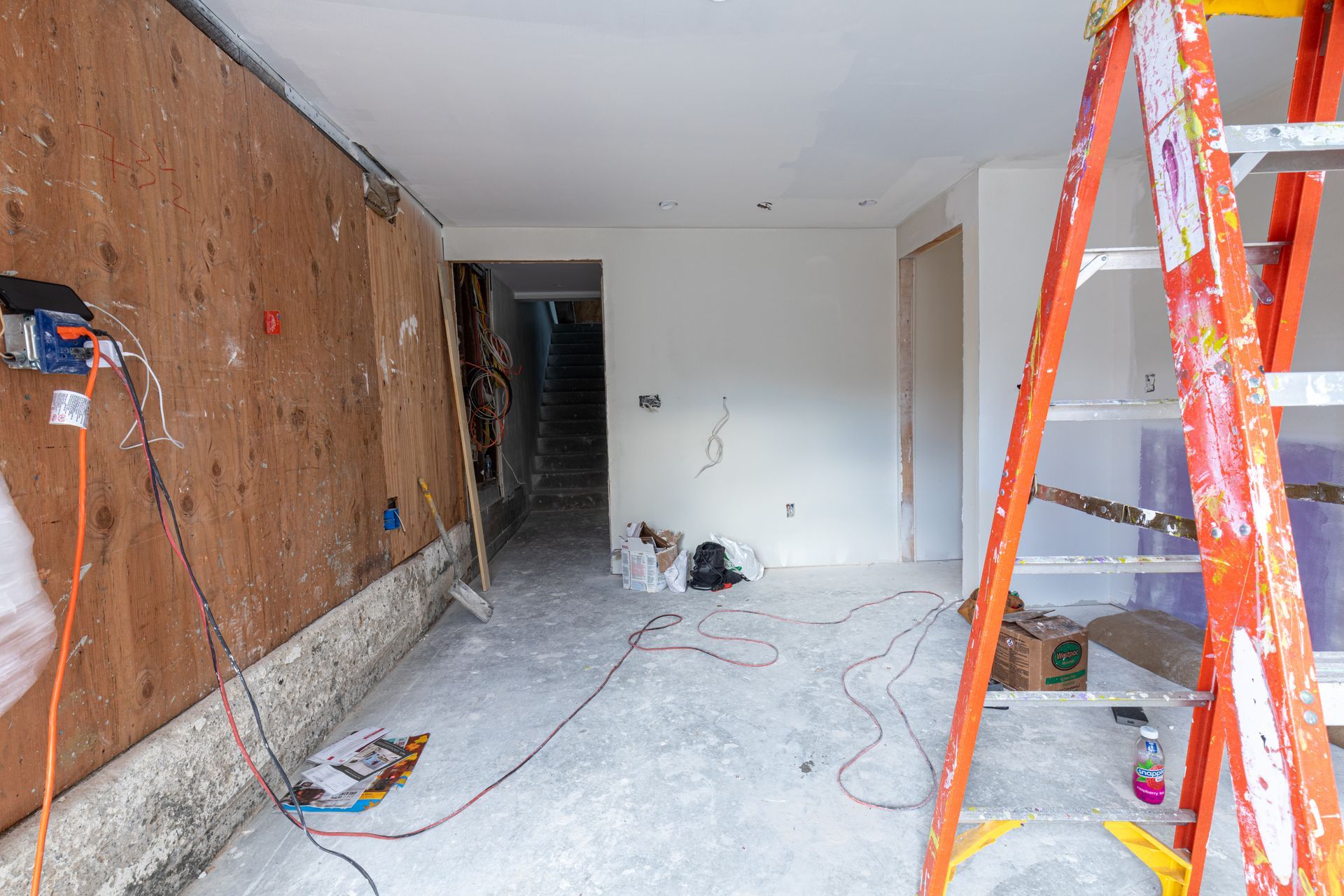
Before embarking on a home renovation project, establishing a realistic budget is crucial. Begin the process by conducting thorough research into the typical costs associated with similar renovation projects in your area. This includes considering factors such as labor charges, material expenses, permit fees, and potential unforeseen costs that may arise during the course of the project. By gaining a comprehensive understanding of the financial aspects involved, you can ensure that your budget is well-informed and accurately reflects the scope of your renovation plans.
One of the most effective ways to determine the costs of your renovation project is to consult with a reputable home renovation contractor in your locality. These professionals have the expertise and experience to provide you with precise cost assessments tailored to the specific requirements of your project. They can also offer valuable insights into potential cost-saving measures and alternative options that may help you achieve your desired results within your budget constraints.
When estimating your renovation budget, it's important to be realistic and account for any unexpected expenses that may arise along the way. This could include unforeseen structural issues, changes in material prices, or additional work that becomes necessary once the project is underway. By building a contingency fund into your budget, you can better prepare for these eventualities and avoid being caught off guard by unexpected costs.
In addition to budgeting for the construction phase of your renovation project, it's also important to consider any additional expenses that may arise during the planning and design stages. This could include hiring architects or designers, obtaining necessary permits, or conducting inspections to ensure compliance with building codes and regulations. By accounting for these costs upfront, you can avoid delays and potential setbacks later on in the project.
Overall, establishing a clear and realistic budget is essential for the success of your home renovation project. By conducting thorough research, consulting with experienced professionals, and accounting for potential contingencies, you can ensure that your budget accurately reflects the true cost of bringing your renovation plans to life. With careful planning and financial foresight, you can embark on your renovation journey with confidence, knowing that you're well-prepared to achieve your desired results within your budgetary constraints.
Explore Financing Options
Once you've solidified your renovation budget, the next step is to explore various financing options to fund your project. Homeowners have a wide array of avenues to consider, ranging from personal savings and home equity loans to government aid programs and renovation-specific loans. Each financing option comes with its own set of advantages and considerations, so it's crucial to conduct a thorough evaluation to determine which one aligns best with your financial situation and overarching goals.
Personal savings are often the most straightforward way to finance a renovation project. By using funds that you've saved up over time, you can avoid accruing debt and interest payments. However, it's important to ensure that you have enough savings set aside for emergencies and unexpected expenses before committing to a renovation project.
Home equity loans are another common financing option for homeowners looking to fund their renovations. These loans allow you to borrow against the equity you've built up in your home, typically at a lower interest rate than other forms of borrowing. However, keep in mind that you'll be using your home as collateral, so it's essential to make sure you can afford the monthly payments and that you're comfortable taking on additional debt.
Government aid initiatives, such as grants or tax credits for energy-efficient home improvements, can also help offset the cost of renovations. These programs vary by location and may have specific eligibility criteria, so it's important to research what's available in your area and determine if you qualify.
Lastly, renovation-specific loans, such as home improvement loans or lines of credit, are designed specifically to fund renovation projects. These loans often have flexible terms and may not require any collateral, making them an attractive option for many homeowners. However, be sure to compare rates and terms from multiple lenders to ensure you're getting the best deal possible.
Research Home Renovation Contractors
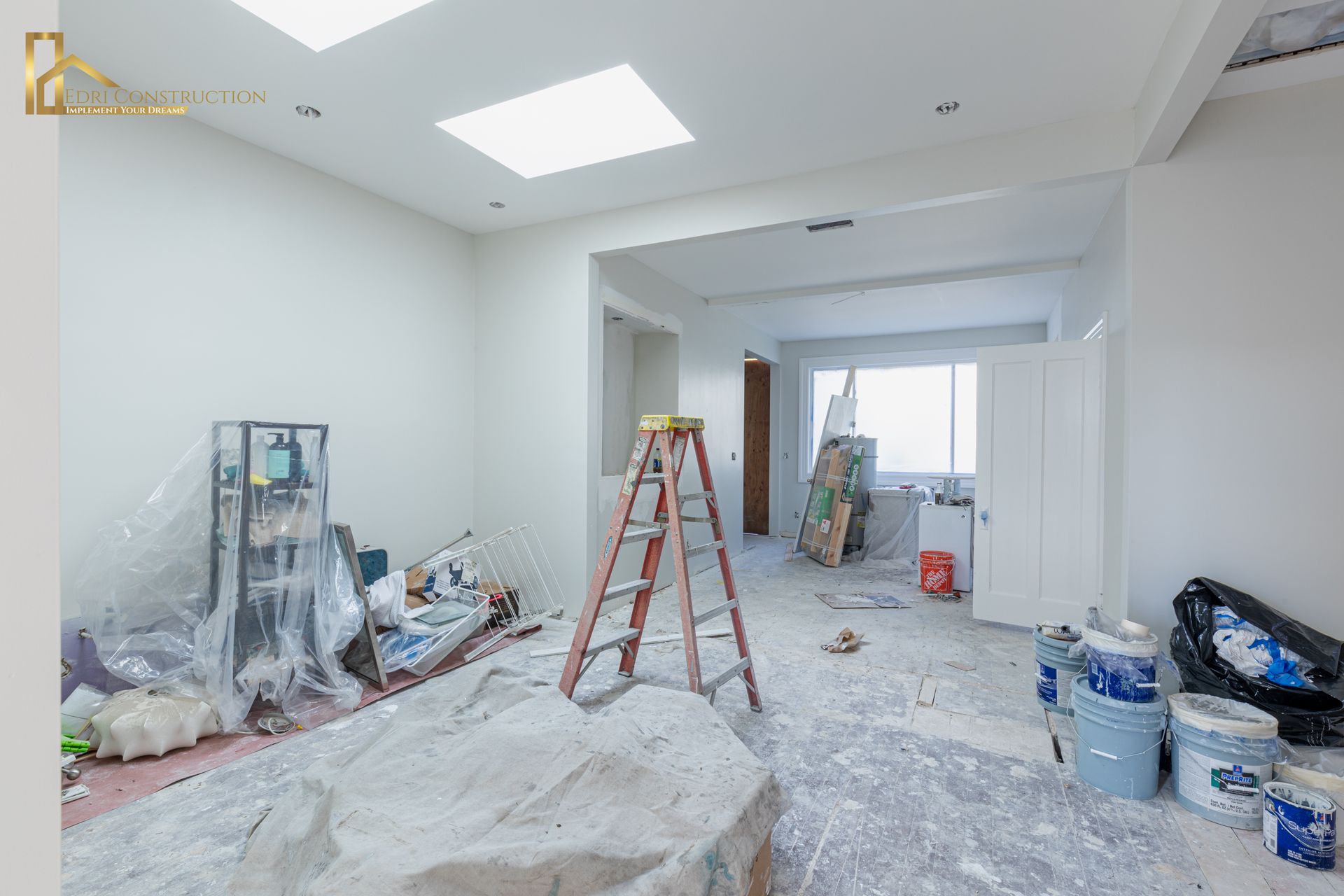
Finding the perfect home renovation contractor is a pivotal step toward ensuring the success of your project. To start your search, engage in comprehensive research to pinpoint reputable contractors in your area. This involves exploring various online platforms, scrutinizing customer reviews, and seeking recommendations from reliable sources like friends, family, and colleagues. By leveraging these avenues, you can gather valuable insights into the quality of service provided by different contractors and their overall reputation within the community.
As you assess potential contractors, prioritize those with extensive experience in the field, valid licensing, and comprehensive insurance coverage. Experience matters significantly, as it indicates a contractor's proficiency in handling various renovation challenges and delivering satisfactory results. Licensing ensures that the contractor adheres to industry standards and regulations, while insurance coverage provides protection against potential liabilities that may arise during the course of the project.
Additionally, pay close attention to the contractor's track record of completing projects on schedule and within budget constraints. A proven history of delivering top-notch workmanship demonstrates reliability and professionalism, instilling confidence in their ability to meet your expectations.
When vetting potential contractors, consider scheduling initial consultations to discuss your project requirements and gauge their level of expertise and professionalism. Use this opportunity to ask pertinent questions about their approach to project management, communication protocols, and any potential challenges they foresee. A transparent and open dialogue during this stage can help establish a solid foundation for a successful working relationship.
Furthermore, don't hesitate to request references from past clients and inspect completed projects firsthand, if possible. This allows you to gain firsthand insights into the quality of the contractor's work and their ability to fulfill their promises. Ultimately, selecting the right home renovation contractor requires careful consideration and due diligence. By conducting thorough research, seeking recommendations, and evaluating candidates based on their experience, credentials, and track record, you can increase the likelihood of partnering with a contractor who can bring your renovation vision to life with professionalism, efficiency, and excellence.
Plan Your Renovation Timeline
Efficient planning is vital for minimizing disruptions and ensuring a smooth renovation experience. Work closely with your chosen contractor to develop a practical timeline for each phase of the project, taking into account factors like material lead times, subcontractor availability, and potential setbacks. Flexibility is essential, as unforeseen circumstances may arise during the renovation process, requiring adaptation and adjustment.
Collaborating closely with your contractor is crucial in establishing an effective plan for your renovation project. By working together, you can develop a realistic timeline that accounts for all aspects of the project, from initial demolition to final finishing touches. Consider factors such as the availability of materials, the scheduling of subcontractors, and any potential delays that may occur due to unforeseen challenges.
It's important to remain flexible throughout the planning process, as unexpected issues can arise that may necessitate changes to the timeline. By maintaining open communication with your contractor and being prepared to adjust the schedule as needed, you can minimize the impact of disruptions and keep the project on track. In addition to creating a timeline, it's also beneficial to establish clear lines of communication with your contractor and other key stakeholders involved in the project. Regular check-ins and progress updates can help ensure that everyone is on the same page and that any issues are addressed promptly.
By investing time and effort into efficient planning, you can set the stage for a successful renovation journey. By collaborating closely with your contractor, developing a realistic timeline, and remaining flexible in the face of unexpected challenges, you can minimize disruptions and ensure that your renovation project is completed on time and within budget.
Consider the Tax Implications
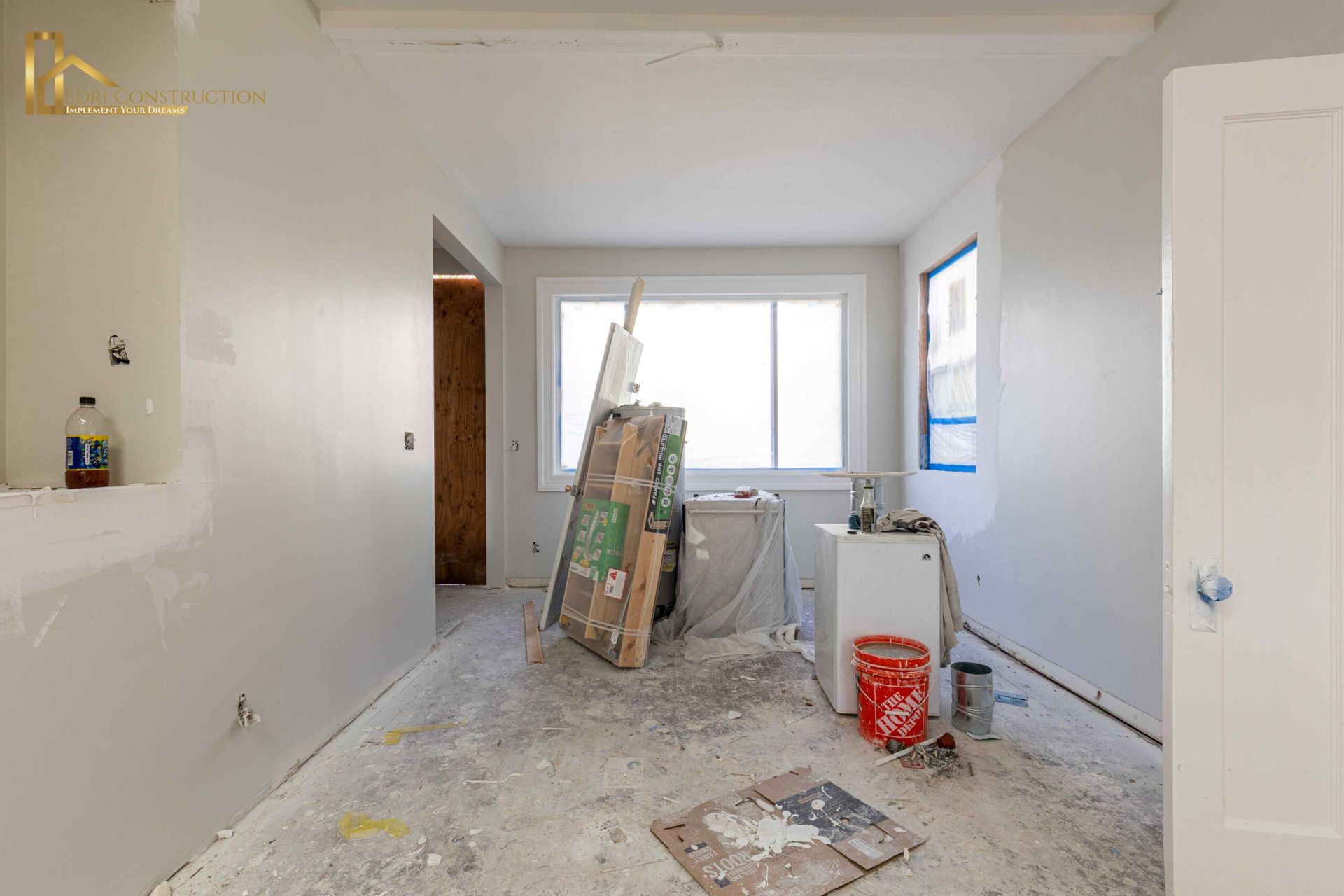
Depending on where you're located and the specifics of your renovation undertaking, you might qualify for particular tax deductions or incentives. It's advisable to seek guidance from a tax professional to comprehend the potential tax ramifications of your renovation and capitalize on any available benefits. Maintaining meticulous records of your expenditures and retaining receipts is crucial for substantiating your claims and adhering to tax regulations.
Your geographical location and the scope of your renovation project could entitle you to various tax deductions or incentives. Consulting with a tax expert is prudent to grasp the potential tax implications of your renovation efforts and maximize any available benefits. Keeping comprehensive records of your expenses and retaining receipts is essential to substantiate your claims and ensure compliance with tax laws.
Prioritize Energy Efficiency
Integrating energy-efficient elements into your home renovation can yield a trifecta of benefits: shrinking your carbon footprint, slashing utility bills, and boosting your property's value. Ponder allocating resources towards energy-efficient appliances, windows, insulation, and HVAC systems to elevate your home's sustainability and comfort levels. Numerous government incentive programs extend rebates and tax credits for energy-conscious home enhancements, making it imperative to explore these options.
By incorporating energy-efficient enhancements into your home renovation, you can achieve a triple-win scenario: reducing your environmental impact, cutting down on utility expenses, and elevating your property's overall value. Consider prioritizing investments in energy-saving appliances, windows designed for optimal insulation, high-quality insulation materials, and advanced HVAC systems. Furthermore, take advantage of various government incentive programs that provide rebates and tax credits for homeowners implementing energy-efficient upgrades, ensuring that you explore and capitalize on these advantageous opportunities.
Explore Design Ideas
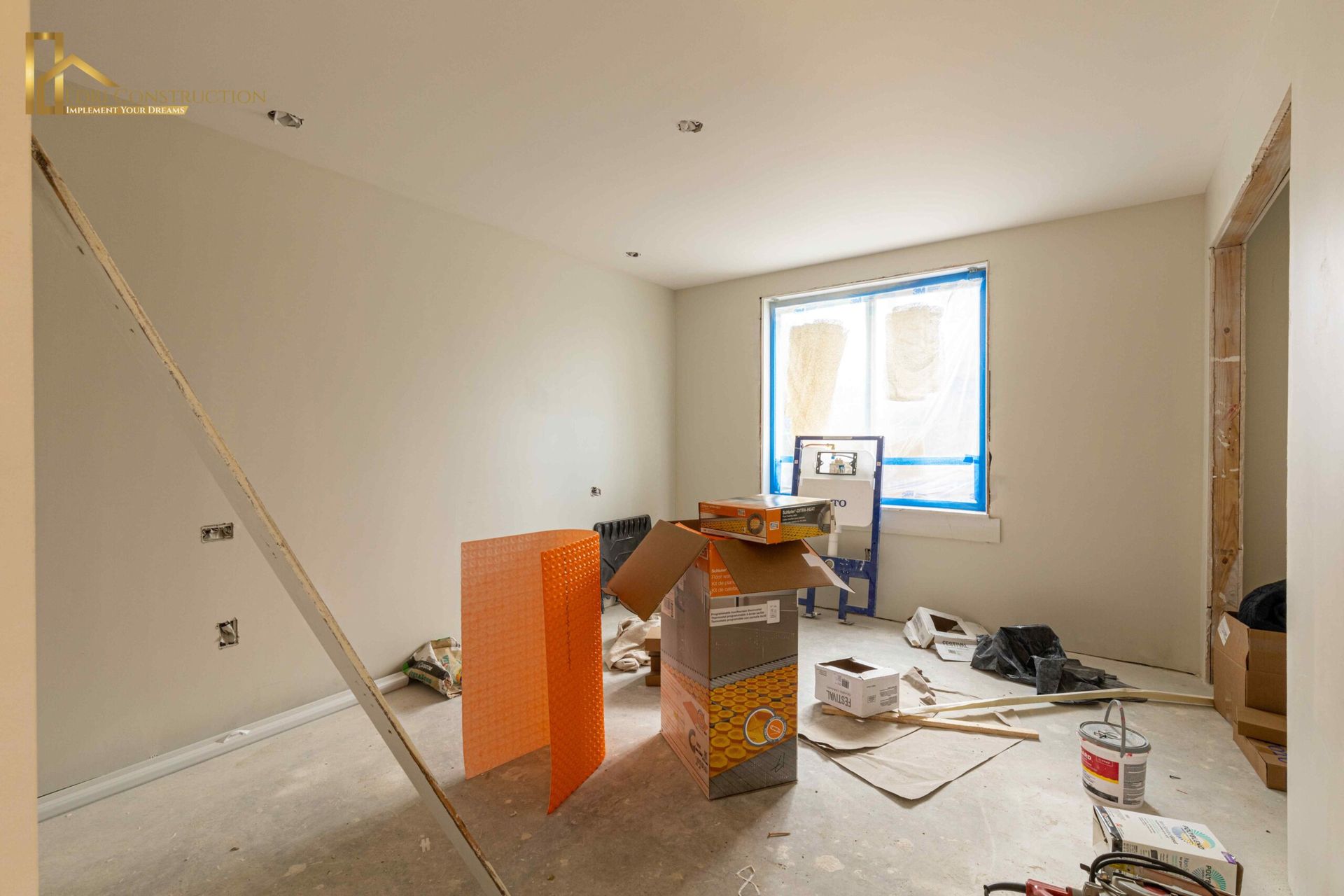
Before cementing your renovation blueprint, dedicate ample time to exploring diverse design concepts and drawing inspiration from various sources. Peruse through home improvement magazines, scour online websites, and delve into social media platforms to gather ideas on layout configurations, color palettes, material selections, and finishing touches. Constructing a vision board or digital mood board can aid in visualizing your desired aesthetic and effectively communicating your preferences to your contractor.
Prior to solidifying your renovation plans, it's essential to immerse yourself in a world of design exploration and inspiration. Dive into a plethora of resources, including home improvement magazines, online platforms, and social media channels, to glean insights into layout possibilities, color schemes, material options, and finishing details. Utilizing tools such as vision boards or digital mood boards can facilitate the visualization process, enabling you to articulate your aesthetic vision clearly to your contractor.
Don't Forget About the Exterior
While interior renovations tend to steal the spotlight, it's crucial not to underestimate the significance of exterior upgrades in augmenting your home's curb appeal and overall worth. Delve into projects like landscaping enhancements, siding replacement, roof repairs, and driveway resurfacing to breathe new life into your property's exterior, enhancing both its visual appeal and practical functionality.
While the allure of interior renovations may be undeniable, it's equally essential to recognize the pivotal role of exterior upgrades in elevating your home's curb appeal and intrinsic value. Embark on projects such as landscaping transformations, siding overhauls, roof refurbishments, and driveway revamps to infuse your home's exterior with a fresh, rejuvenated appearance while simultaneously enhancing its resilience and functionality.
Communicate Effectively with Your Contractor
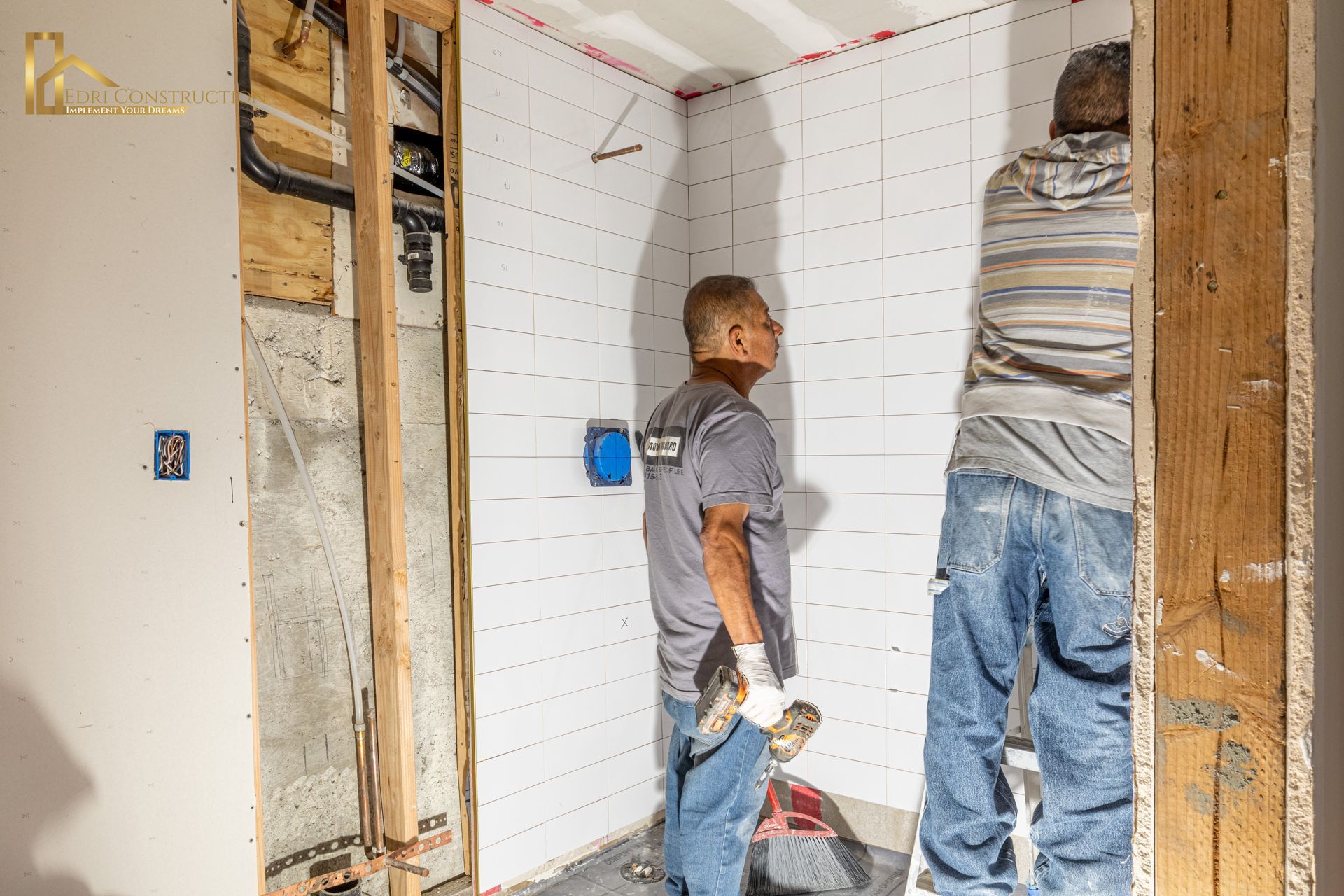
Effective communication with your contractor is paramount to the success of your home renovation endeavor. From the get-go, articulate your expectations, preferences, and any concerns clearly and concisely. Maintaining open and transparent communication throughout the project allows for timely resolution of any issues or changes that may arise. Cultivating a positive working relationship built on trust and mutual respect lays the foundation for a seamless and gratifying renovation experience for all parties involved.
Open and transparent communication with your contractor is the cornerstone of a successful home renovation project. From the initial stages, make sure to express your expectations, preferences, and any apprehensions in a clear and straightforward manner. Sustaining regular communication channels throughout the duration of the project enables swift resolution of any issues or modifications that may emerge along the way. By fostering a collaborative and respectful working dynamic, you can pave the way for a smooth and gratifying renovation journey for both you and your contractor.
Conclusion
In conclusion, embarking on a home renovation project is an exciting opportunity to transform your living space and enhance your quality of life. By considering factors such as budget, goals, financing options, contractor selection, timeline, tax implications, energy efficiency, design ideas, exterior upgrades, and communication, you can navigate the renovation process with confidence and achieve your desired outcomes. Remember, thorough planning and careful consideration are the keys to unlocking the full potential of your home renovation journey.
Frequently Asked Questions About
Home Renovation
What factors should I consider before starting a home renovation?
Before beginning a home renovation project, it's essential to consider factors such as your renovation goals, budget, financing options, contractor selection, timeline, potential tax implications, energy efficiency upgrades, design ideas, exterior improvements, and communication with your contractor.
How do I determine my renovation budget?
To determine your renovation budget, research the average costs associated with similar projects in your area, factor in expenses for labor, materials, permits, and unforeseen costs, and consider your financing options and long-term financial goals.
How can I find a reliable home renovation contractor?
Finding a reliable home renovation contractor involves researching contractors in your area, reading online reviews, asking for recommendations, verifying licensing and insurance, checking references, and conducting interviews to ensure they align with your project needs and expectations.
What financing options are available for home renovations?
There are several financing options available for home renovations, including personal savings, home equity loans or lines of credit, government assistance programs, renovation-specific loans, and contractor financing plans. Evaluate each option based on your financial situation and long-term goals.
Are there tax deductions available for home renovations?
Depending on your location and the nature of your renovation project, you may be eligible for certain tax deductions or incentives. Consult with a tax professional to understand the potential tax implications of your renovation and maximize any available benefits.
How can I prioritize energy efficiency in my renovation project?
To prioritize energy efficiency in your renovation project, consider investing in energy-efficient appliances, windows, insulation, HVAC systems, and lighting fixtures. Research government incentive programs that offer rebates and tax credits for energy-efficient home improvements.
Where can I find design inspiration for my home renovation?
You can find design inspiration for your home renovation project by browsing home improvement magazines, websites, and social media platforms, visiting home design showrooms, attending home tours, and working with a professional interior designer or architect.
What exterior upgrades should I consider for my home renovation?
Exterior upgrades to consider for your home renovation project include landscaping, siding replacement, roof repairs or replacement, window and door replacements, driveway resurfacing, and outdoor living space enhancements such as decks or patios.
What factors should I consider before starting a home renovation?
Describe the item or answer the question so that site visitors who are interested get more information. You can emphasize this text with bullets, italics or bold, and add links.What should I do if I encounter unexpected challenges during my renovation?
If you encounter unexpected challenges during your renovation, such as budget overruns, delays, or quality issues, communicate openly with your contractor to address the issues promptly and find mutually acceptable solutions. If necessary, seek assistance from a professional mediator or legal advisor to resolve disputes.










